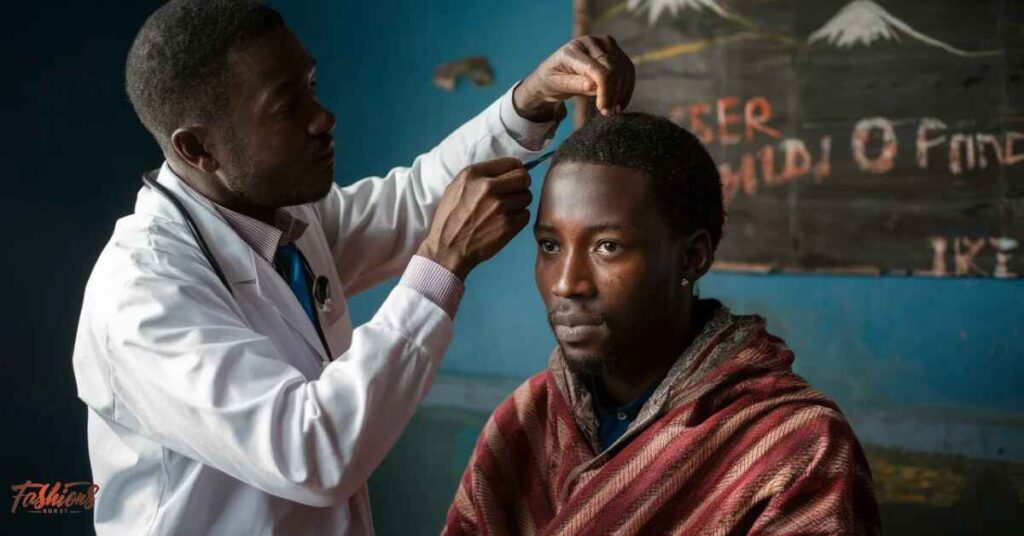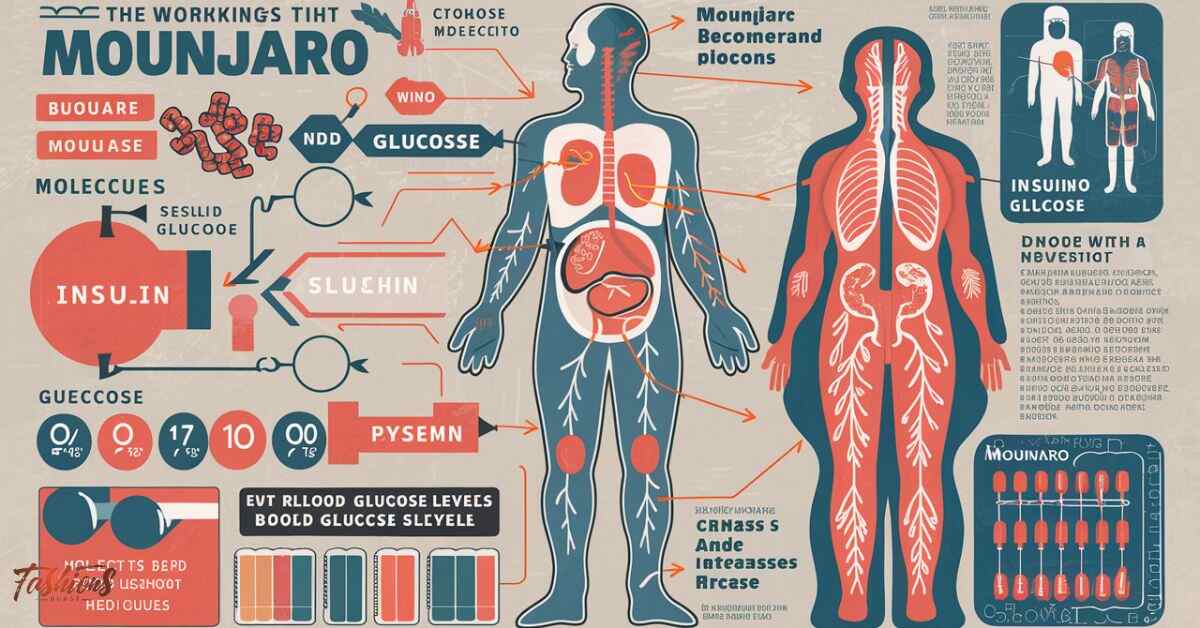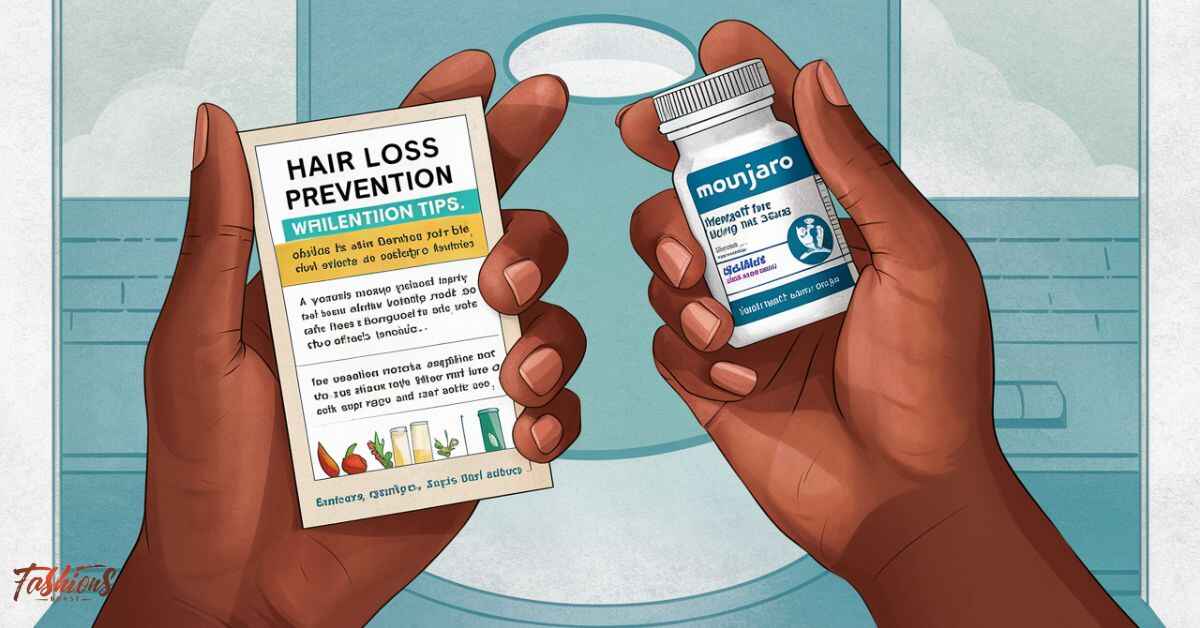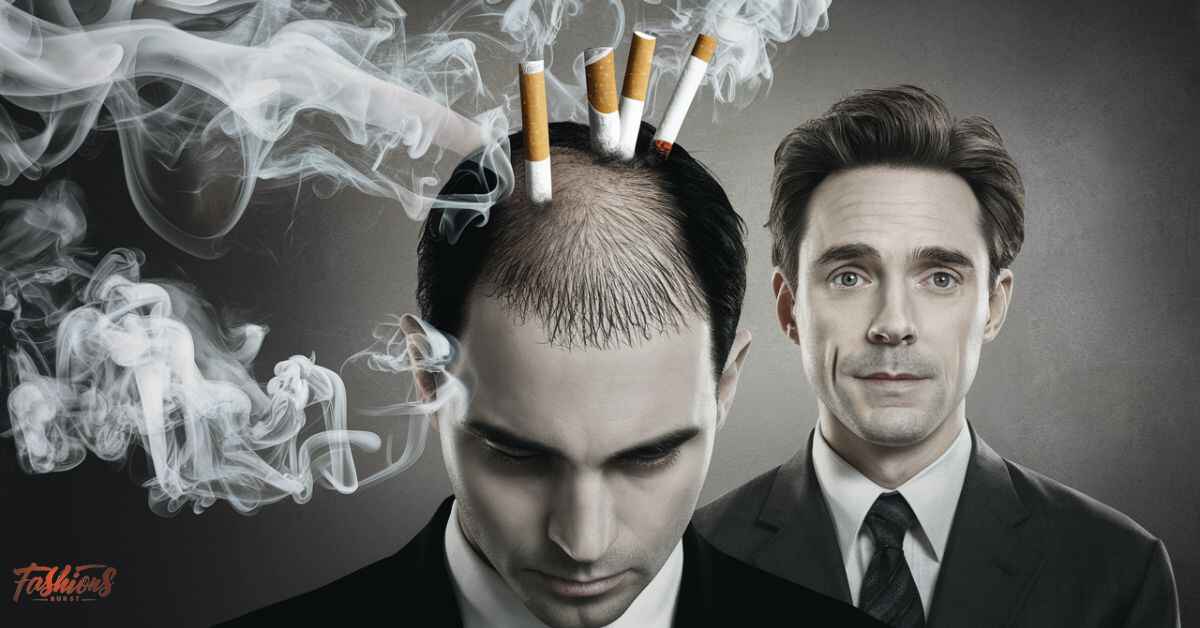The world of weight loss and diabetes management has been abuzz with the introduction of Mounjaro, a revolutionary medication that promises remarkable results.
However, amidst the excitement, concerns have surfaced regarding a potential side effect – hair loss. In this comprehensive article, we’ll dive deep into the relationship between Mounjaro and hair loss, drawing insights from expert opinions and scientific research.
What is Mounjaro?
Mounjaro, also known as tirzepatide, is a groundbreaking medication developed by the pharmaceutical giant Eli Lilly. It has recently gained approval from regulatory bodies such as the US Food and Drug Administration (FDA), the UK’s National Institute for Health and Care Excellence (NICE), and the Medicines and Healthcare Products Regulatory Agency (MHRA) for treating type 2 diabetes and facilitating weight loss.
Mounjaro is an injectable medication available in prefilled pens, with various concentrations ranging from 2.5 mg to 15 mg per dose. Typically, one dose per week is recommended, with the ability to gradually increase the dosage as per your healthcare provider’s guidance and your body’s response.
How does Mounjaro work?
When used for type 2 diabetes management, Mounjaro works by increasing insulin production in the body while decreasing the amount of glucose produced by the liver. This dual action helps to effectively lower blood sugar levels.
On the other hand, when used for weight loss purposes, Mounjaro regulates appetite by making you feel fuller for longer periods. It also reduces food cravings. This mechanism can lead to a reduced caloric intake, facilitating weight reduction.
Does Mounjaro cause hair loss?
While Mounjaro is a relatively new medication, preliminary studies and patient reports suggest a potential link between its use and hair loss. A meta-analysis conducted on eight studies involving 8,847 participants who received Mounjaro over two years revealed that approximately 5.7% of them experienced alopecia (hair loss).
Another study found that 4% of patients treated with tirzepatide (the active substance in Mounjaro) experienced hair loss, compared to only 0.7% in the placebo group. These findings prompted Eli Lilly, the manufacturer of Mounjaro, to add hair loss to the list of potential adverse reactions. They marked it as a common even.
Furthermore, the FDA is currently investigating reports of hair loss and suicidal thoughts in individuals using diabetes and weight loss drugs such as Mounjaro, Ozempic, and Wegovy.
While the exact mechanisms behind Mounjaro-induced hair loss are still being researched, theories suggest that it could be related to the impact of tirzepatide on hormonal activity or metabolism. Rapid weight loss is sometimes associated with nutritional deficiencies, which can contribute to hair loss. Rebalancing the diet to ensure adequate vitamin and mineral intake may help prevent hair loss in some cases.
Read this blog: How Much Are Hair Extensions?
Can Mounjaro help reduce hair loss?
Interestingly, some studies suggest that type 2 diabetes can predispose individuals to hair loss due to impaired blood flow to the scalp. This deprivation limits the oxygen and nutrients available to hair follicles. A study involving 5,389 African American women with type 2 diabetes revealed an increased risk of severe central scalp hair loss.
While more research is needed to establish a causal relationship between diabetes and alopecia, using Mounjaro to better manage blood sugar levels may potentially reduce hair loss in diabetic patients.
Additionally, there may be good news for non-diabetic individuals using Mounjaro for weight loss. Polycystic ovary syndrome (PCOS), often associated with excess weight, is known to cause hair loss. Some animal studies also suggest that obesity itself might accelerate hair thinning.
While Mounjaro has already been approved for weight loss treatment, it may also prove beneficial in the management of PCOS. It could potentially prevent additional hair loss by lowering body weight and helping control PCOS symptoms. However, these effects still need to be confirmed through clinical trials.
Who Experienced Hair Loss After Using Mounjaro?
According to clinical trial data, the incidence of hair loss among Mounjaro users varied across different demographics. It’s essential to note that individual responses to medications can vary, and what affects one person may not affect another in the same way.
While specific statistics on the demographics affected by Mounjaro-induced hair loss are not widely available, it’s crucial for individuals prescribed this medication to monitor their health closely. They should consult with healthcare providers regarding any unusual changes.
Why Does Weight Loss Lead To Temporary Hair Loss?
It’s important to understand that rapid weight loss, which can occur with Mounjaro treatment, may lead to temporary hair shedding. This phenomenon is known as telogen effluvium.
When the body undergoes significant weight loss, it can experience physical stress, which can disrupt the natural hair growth cycle. This disruption can cause hair follicles to prematurely enter the resting (telogen) phase, resulting in excessive shedding.
Additionally, rapid weight loss can sometimes lead to nutritional deficiencies, which can further contribute to hair loss. Ensuring a balanced diet and adequate intake of essential vitamins and minerals is crucial during weight loss journeys.
How Does Hair Loss Happen?
To better understand the potential impact of Mounjaro on hair loss, it’s essential to grasp the hair growth cycle and the mechanisms behind hair shedding.
The hair growth cycle consists of three main phases:
- Anagen (growth phase): During this phase, hair actively grows from the root.
- Catagen (transition phase): The hair follicle begins to shrink, and growth slows down.
- Telogen (resting phase): The hair follicle goes into a dormant state, and the hair eventually falls out.
Normally, only a small percentage of hair follicles are in the telogen phase at any given time. However, certain factors, such as stress, hormonal changes, and medications like Mounjaro, can disrupt this cycle and cause an excessive number of follicles to enter the telogen phase prematurely, leading to increased hair shedding.
Is Hair Loss Permanent?
It’s crucial to differentiate between temporary and permanent hair loss when discussing the potential effects of Mounjaro.
In many cases, the hair loss experienced while taking Mounjaro is temporary and reversible. Once the underlying cause (e.g., rapid weight loss, hormonal changes) is addressed or the medication is discontinued, the hair follicles can potentially recover. They can then resume their normal growth cycle.
However, in some individuals, the hair loss may be more persistent. It could also be indicative of an underlying condition, such as androgenetic alopecia (male or female pattern baldness) or alopecia areata (an autoimmune condition causing patchy hair loss). In these cases, seeking professional medical advice is essential. It can help in getting appropriate treatment to prevent further hair thinning or permanent hair loss.
How Can I Reduce The Chances Of Hair Loss While Using Mounjaro?
While the risk of hair loss with Mounjaro cannot be entirely eliminated, there are several proactive steps you can take to minimize the chances. You can also manage any potential hair shedding effectively:
- Consult with your healthcare provider: Discuss your concerns about hair loss with your doctor or healthcare provider. They can provide personalized advice and monitor your progress while on Mounjaro.
- Maintain a balanced diet: Ensure that you are getting adequate nutrients, vitamins, and minerals through your diet or appropriate supplementation. Nutritional deficiencies can exacerbate hair loss.
- Manage stress levels: Stress can contribute to hair loss, so practicing stress-reduction techniques like exercise, meditation, or seeking professional support can be beneficial.
- Avoid excessive heat styling: Limit the use of heat-based styling tools, as excessive heat can damage hair and contribute to breakage.
- Protect your hair from the sun: Prolonged exposure to UV rays can dry out and weaken hair strands, leading to increased shedding. Wear protective headgear when spending extended periods in the sun.
- Avoid harsh chemicals: Steer clear of harsh chemicals, such as those found in certain hair dyes, bleaches, and some shampoos, as they can strip hair of its natural oils and cause damage.
- Be gentle with your hair: Avoid tight hairstyles, excessive brushing, or any practices that put tension on your hair and scalp, as this can lead to traction alopecia.
Remember, consulting with a healthcare professional is crucial. They can provide personalized guidance and recommend appropriate treatments or adjustments to your Mounjaro regimen if necessary.
Also read: Lil Wayne’s Iconic Hair Cut: A Guide To Rocking Dreadlocks Like Weezy
Will stopping the Mounjaro treatment make my hair grow back?
If you are experiencing hair loss while taking Mounjaro, a common question arises: Will discontinuing the treatment lead to hair regrowth? The answer is not straightforward and depends on various factors.
Since Mounjaro is effective only while you are actively taking it, stopping the treatment may result in the cessation of its adverse effects, including hair loss. However, if your hair loss is primarily due to vitamin deficiencies caused by the accelerated weight loss induced by Mounjaro, simply supplementing the deficient nutrients may not necessarily lead to hair regrowth. It’s essential to address the underlying cause and consult with a healthcare professional for a comprehensive treatment plan.
It’s crucial to discuss your intentions to discontinue treatment with your healthcare provider. They can help you weigh the benefits of the treatment against its adverse effects. Additionally, they may offer solutions to effectively manage your hair loss, such as dietary adjustments or alternative medications.
If the hair loss is temporary and related to the physical stress of weight loss or hormonal changes induced by Mounjaro, discontinuing the treatment may allow the hair follicles to recover and resume their normal growth cycle. However, if the hair loss is indicative of an underlying condition, such as androgenetic alopecia or alopecia areata, additional treatment may be required.
The decision to continue or discontinue Mounjaro should be made in consultation with your healthcare provider. It consider your overall health, the severity of hair loss and the potential benefits and risks of the treatment.
Treatment and precautionary measures for unnecessary hair loss
If you are experiencing hair loss while taking Mounjaro, there are various treatment options and precautionary measures you can consider. These measures aim to mitigate the issue and promote healthy hair growth.
Use hair growth treatments
Several scientifically proven medications and therapies can help reduce medication-induced hair loss and stimulate hair follicles for regrowth. One of the most frequently recommended hair growth drugs is minoxidil. It can be used topically to dilate blood vessels in the scalp, allowing more oxygen and nutrients to reach the hair follicles.
However, it’s essential to consult a medical professional before taking any hair growth medication. They may have potential side effects or interact with your current treatments.
Aside from medications, other effective therapies include:
- Derma rolling for hair growth: This involves using a handheld device with microneedles to create microscopic punctures in the scalp, stimulating the hair follicles and promoting regeneration.
- Red light therapy for hair: Low-level light therapy, also known as red light therapy, uses specific wavelengths of light to stimulate hair follicles and promote hair growth.
PRP
Platelet-rich plasma (PRP) therapy is a popular and effective treatment option for hair loss. It involves the following steps:
- Drawing a small amount of the patient’s blood.
- Processing the blood to concentrate the platelets.
- Injecting the resulting PRP into the scalp.
PRP therapy is believed to stimulate and sustain natural hair growth. It does this by enhancing blood supply to the hair follicles and increasing the thickness of the hair shaft.
Red Light Therapy
Low-level laser therapy (LLLT) or red light therapy is a non-invasive and safe approach to promoting hair growth. It involves exposing the scalp to specific wavelengths of low-intensity light. This light penetrates the scalp tissues and is absorbed by weak cells, stimulating hair growth.
Red light therapy is widely acknowledged as a tolerable and effective method for addressing hair loss. It’s often used in conjunction with other treatments or medications.
Topical Medication
Minoxidil, an over-the-counter medication, is available in liquid, foam, and shampoo forms and has benefited many individuals by slowing hair loss and stimulating hair regrowth. However, it’s important to note that consistent use for at least six months is typically required to see visible results. Continuous application is necessary to maintain the benefits.
Get sufficient nutrients in your diet
Ensuring a balanced diet rich in essential vitamins and minerals is crucial when dealing with hair loss. Some vitamin deficiencies, such as those of vitamins D, E, and iron, can contribute to hair thinning. Supplementing these nutrients, under the guidance of a healthcare professional, can help prevent further hair loss and promote healthy hair growth.
Limit or quit smoking
Smoking is well-known for its detrimental effects on hair health. By constricting blood vessels and reducing blood flow to the hair follicles, smoking can accelerate hair loss. Additionally, while more research is needed, there is a possibility that vaping and the use of e-cigarettes, which contain nicotine, may also contribute to hair loss. Limiting or quitting smoking and nicotine intake altogether can help mitigate unnecessary hair shedding.
Avoid frequent heat styling
Excessive heat styling, such as blow-drying, straightening, or curling, can cause significant damage to your hair strands, making them dry, brittle, and prone to breakage. This hair breakage can contribute to the overall thinning and loss of hair. It’s recommended to let your hair air-dry as much as possible and use cooler settings on heat-styling tools when necessary.
Reduce unprotected exposure to the sun
Prolonged exposure to the sun’s harmful UV rays can dry out and weaken your hair strands, leading to increased shedding and breakage. To protect your hair from sun damage, wear a hat or use other protective headgear when spending extended periods outdoors.
Avoid using harsh chemicals on your hair
Certain hair care products, such as bleaches, dyes, and shampoos containing harsh detergents like Sodium Lauryl Sulfate (SLS), can strip your hair and scalp of their natural oils, causing dryness, brittleness, and potential hair loss. It’s advisable to opt for gentler, sulfate-free products and avoid excessive chemical treatments on your hair.
Avoid wearing tight hairstyles
Tight hairstyles, such as braids, ponytails, or hair extensions, can put excessive tension on your hair follicles, leading to a condition called traction alopecia. This can cause temporary or permanent hair loss, especially along the hairline and fringe areas. To prevent this, it’s best to avoid wearing tight hairstyles or heavy extensions for prolonged periods.
Reduce your stress levels
Psychological stress and anxiety can have a profound impact on your overall health, including your hair. When you’re under stress, your body may divert resources away from non-essential functions like hair growth, leading to increased shedding. Incorporating stress-reduction techniques, such as exercise, meditation, or seeking professional therapy, can help alleviate this issue and promote overall well-being.
What other medications can cause hair loss?
While chemotherapy-induced hair loss is often the first association that comes to mind when discussing medications that can cause hair loss, it is far from the only culprit. Several types of medications have been linked to hair thinning and shedding, albeit usually to a lesser extent than chemotherapy drugs.
Some common medications that may contribute to hair loss include:
- Oral contraceptive pills
- Certain heart medications
- Certain types of antibiotics
- Antifungal medications
- Some antidepressants
- Nonsteroidal anti-inflammatory drugs (NSAIDs) like ibuprofen or aspirin
- Excessive vitamin A supplementation
- Other weight loss medications, such as Wegovy
It’s important to note that not everyone who takes these medications will necessarily experience hair loss. Individual responses can vary significantly and what affects one person may not affect another in the same way.
If you are concerned that certain medications you are taking may be contributing to your hair loss, it’s advisable to discuss this with your healthcare provider. They can evaluate your situation and explore potential alternatives or adjustments to your treatment regimen if necessary.
Conclusion
Mounjaro, a medication lauded for its efficacy in diabetes management and weight loss, has raised concerns about potential hair loss side effects. While consulting healthcare providers is vital in deciding to continue or discontinue Mounjaro, there are proactive steps like maintaining a balanced diet and managing stress levels to minimize hair shedding.
Various treatments such as minoxidil, PRP therapy, and red light therapy offer hope for hair regrowth. However, it’s crucial to consider the temporary or permanent nature of hair loss and seek professional advice for personalized treatment plans, ensuring holistic well-being during Mounjaro treatment.













